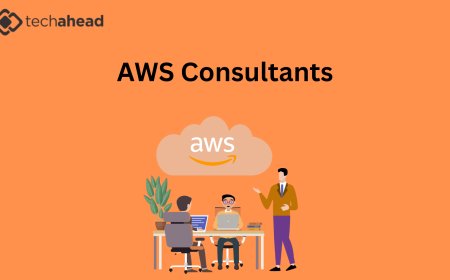PCI DSS Consulting vs. In-House Compliance: Which Is Better?
Explore the differences between PCI DSS consulting and in-house compliance. Learn which option best suits your business's security and budget requirements.

In today's highly digital and security-conscious business environment, organizations handling cardholder data must meetPCI DSS (Payment Card Industry Data Security Standard) requirements. A major decision businesses face is whether to rely on PCI DSS Consulting services or build an in-house compliance team. Each option offers unique benefits, but which one is better depends on your organizations size, resources, and risk tolerance.
In this blog, we will explore both options and help you decide which approach makes the most sense for your businesswhile also understanding the broader context of security infrastructure such as dedicated fiber internet, best email security solutions, and cybersecurity risk assessment services.
Understanding PCI DSS Compliance
PCI DSS is a set of security standards designed to ensure that all companies that process, store, or transmit credit card information maintain a secure environment. Achieving and maintaining compliance is not just about avoiding finesit's about protecting your brand and customer trust.
Option 1: PCI DSS Consulting
PCI DSS Consulting firms specialize in helping businesses become and remain compliant. Heres how they provide value:
Benefits:
-
Expertise and Experience: A pci compliance consultant brings deep knowledge of the standards and audit processes.
-
Faster Implementation: With tried-and-tested frameworks, consultants can speed up compliance timelines.
-
Third-party Validation: Independent consultants provide credibility, especially when reporting to clients or partners.
-
Focus on Core Business: Outsourcing lets your team concentrate on core operations.
Added Value:
PCI DSS consultants often work alongside other services such as cybersecurity risk assessment services and gdpr compliance consulting, giving you a comprehensive view of your risk posture. They may also advise on technical infrastructure, such as deploying dedicated fiber internet for secure and reliable connections.
Option 2: In-House Compliance
Establishing an internal compliance team gives you direct control over your data security and compliance strategy.
Benefits:
-
Tailored Solutions: Your team knows your systems and business processes inside out.
-
Long-term Cost Efficiency: Although initial costs may be higher, ongoing expenses can be lower.
-
Immediate Access: In-house teams are always available and integrated with your organizations workflow.
Challenges:
-
Training and Retention: Staff need continuous training on evolving PCI standards.
-
Resource Intensive: Building and maintaining a knowledgeable team requires investment.
-
Limited Perspective: Internal teams may miss risks that external experts would catch.
Factors to Consider Before Choosing
When evaluating whether to go in-house or work with a PCI compliance consultant, consider the following:
-
Size of your organization: Larger companies might afford in-house teams, while SMBs may benefit more from PCI DSS Consulting.
-
Data handling volume: Higher transaction volumes require more robust and regularly audited systems.
-
Technical infrastructure: Do you already have best email security solutions, dedicated fiber internet, and advanced cybersecurity risk assessment services in place?
-
Regulatory environment: If you're also dealing with gdpr compliance consulting needs, external experts might help you navigate overlapping requirements more efficiently.
Final Verdict: Which Is Better?
There is no one-size-fits-all answer. If your organization lacks internal security expertise and needs to achieve compliance quickly and effectively, PCI DSS Consulting is likely the best route. On the other hand, if you have a mature IT and security department with sufficient resources, building an in-house compliance capability might offer better long-term control and customization.
For many businesses, a hybrid approachstarting with a PCI compliance consultant and gradually building in-house capabilitiesstrikes the right balance.
























